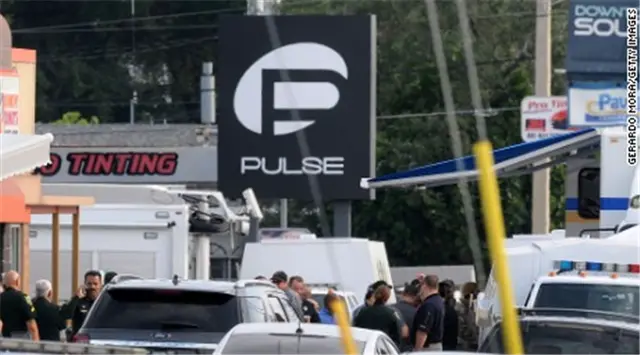Despite the deadliest shooting massacre in modern U.S. history, Washington is unlikely to pass major new gun control laws, experts said.
Sunday's shooting spree at a gay nightclub in Orlando, Florida, which left 49 people killed and 53 others wounded, has reignited the debate on gun control in the United States.
It has sparked calls for increased gun control in the country, where the right to bear firearms is embedded in the Constitution and where millions of ordinary Americans believe it is a sacred right.
Gun control advocates point out that it's inconceivable that the killer, Omar Mateen, was able to legally purchase firearms despite being on a police watch list for possible links to terrorism.
Still, it is doubtful that the attack will lead to any major changes in gun laws, U.S. experts said.
"Thus far crises like this do not change the basic politics of gun control. There is not much evidence at this point that the situation will be different," said Julian Zelizer, professor of history and public affairs at Princeton University.
Asked why U.S. Congress has not passed more gun legislation, he told Xinhua that the opposition to gun control "is well organized and has support in both parties."
Darrell West, vice president and director of governance studies of the Brookings Institution, echoed those remarks.
"The country continues to be divided over gun laws and the NRA (National Rifle Association) still will resist any meaningful action," West told Xinhua.
The United States has long suffered from the woes of gun violence as there are more than 300 million guns in the country.
As usual, there is nationwide outrage over gun violence every time after a major shooting attack occurs, but it dies down fast with no major gun laws passed.
Indeed, even after the Sandy Hook massacre -- the 2012 shooting at an elementary school that killed 20 children aged six and seven -- there was no concerted public outcry for more gun control.
Even so, the issue will likely be the subject of much debate in the lead-up to the 2016 U.S. presidential election.
In a speech from her campaign trail on Monday, the presumptive Democratic nominee for U.S. president, Hilary Clinton, called for more gun control, emphasizing that while there is much controversy over the issue, there are some points on which both sides of the political isle can agree.
Noting the killer of the Orlando shooting was on police watch list for possible links to extremism, Clinton said there is no reason why anyone fitting such a profile should be able to legally purchase firearms.
U.S. anti-gun advocates are angered by the fact that gun lobbying groups led by the NRA have powerful influence on Congress to block any efforts to pass bills on gun control.
The NRA spends tens of millions of U.S. dollars on political lobbying efforts.
But gun rights advocates insist that gun ownership is a constitutional right and gun violence can be curbed by law-abiding citizens bearing guns.
Some criminologists also maintain that attackers who are bent on destruction will always find a way around the law in order to get what they want, whether that means obtaining firearms illegally or constructing bombs from household cleaning agents.
The presumptive Republican nominee Donald Trump, who has been endorsed by the NRA, said in a speech Monday that he continues to support the group, while blasting what he called the current "politically correct response" to the attack.
Trump maintained that more gun laws would simply disarm law-abiding Americans and prevent them from being able to protect themselves from terrorists.
Instead, the brash billionaire seized on the Orlando shooting by attacking President Barack Obama and Clinton for making the country unsafe by trying to curb gun rights of law-abiding citizens while wanting to bring more Muslim immigrants into the country.
(APD)
 简体中文
简体中文

